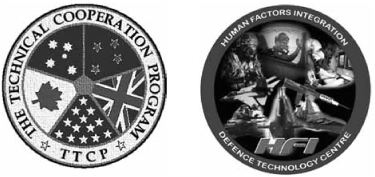Neville A. Stanton - Trust in Military Teams
Here you can read online Neville A. Stanton - Trust in Military Teams full text of the book (entire story) in english for free. Download pdf and epub, get meaning, cover and reviews about this ebook. year: 2011, publisher: Ashgate Publishing Limited, genre: Politics. Description of the work, (preface) as well as reviews are available. Best literature library LitArk.com created for fans of good reading and offers a wide selection of genres:
Romance novel
Science fiction
Adventure
Detective
Science
History
Home and family
Prose
Art
Politics
Computer
Non-fiction
Religion
Business
Children
Humor
Choose a favorite category and find really read worthwhile books. Enjoy immersion in the world of imagination, feel the emotions of the characters or learn something new for yourself, make an fascinating discovery.

- Book:Trust in Military Teams
- Author:
- Publisher:Ashgate Publishing Limited
- Genre:
- Year:2011
- Rating:4 / 5
- Favourites:Add to favourites
- Your mark:
- 80
- 1
- 2
- 3
- 4
- 5
Trust in Military Teams: summary, description and annotation
We offer to read an annotation, description, summary or preface (depends on what the author of the book "Trust in Military Teams" wrote himself). If you haven't found the necessary information about the book — write in the comments, we will try to find it.
Trust in Military Teams — read online for free the complete book (whole text) full work
Below is the text of the book, divided by pages. System saving the place of the last page read, allows you to conveniently read the book "Trust in Military Teams" online for free, without having to search again every time where you left off. Put a bookmark, and you can go to the page where you finished reading at any time.
Font size:
Interval:
Bookmark:
TRUST IN MILITARY TEAMS
Human Factors in Defence
Series Editors:
Dr Don Harris, Managing Director of HFI Solutions Ltd, UK
Professor Neville Stanton, Chair in Human Factors at the University of Southampton, UK
Dr Eduardo Salas, University of Central Florida, USA
Human factors is key to enabling todays armed forces to implement their vision to produce battle-winning people and equipment that are fit for the challenge of today, ready for the tasks of tomorrow and capable of building for the future (source: UK MoD). Modern armed forces fulfil a wider variety of roles than ever before. In addition to defending sovereign territory and prosecuting armed conflicts, military personnel are engaged in homeland defence and in undertaking peacekeeping operations and delivering humanitarian aid right across the world. This requires top class personnel, trained to the highest standards in the use of first class equipment. The military has long recognised that good human factors is essential if these aims are to be achieved.
The defence sector is` far and away the largest employer of human factors personnel across the globe and is the largest funder of basic and applied research. Much of this research is applicable to a wide audience, not just the military; this series aims to give readers access to some of this high quality work.
Ashgates Human Factors in Defence series comprises of specially commissioned books from internationally recognised experts in the field. They provide in-depth, authoritative accounts of key human factors issues being addressed by the defence industry across the world.
EDITED BY
NEVILLE A. STANTON
University of Southampton, UK

ASHGATE
Neville A. Stanton 2011
All rights reserved. No part of this publication may be reproduced, stored in a retrieval system or transmitted in any form or by any means, electronic, mechanical, photocopying, recording or otherwise without the prior permission of the publisher.
Neville A. Stanton has asserted his right under the Copyright, Designs and Patents Act, 1988, to be identified as the editor of this work.
Published by
Ashgate Publishing Limited
Wey Court East
Union Road
Farnham
Surrey, GU9 7PT
England
Ashgate Publishing Company
Suite 420
101 Cherry Street
Burlington
VT 05401-4405
USA
www.ashgate.com
British Library Cataloguing in Publication Data
Trust in military teams. -- (Human factors in defence)
1. Trust (Psychology) 2. Combat--Psychological aspects.
3. Combined operations (Military science)--Psychological aspects. 4. Armed Forces--Equipment--Reliability.
5. Military art and science--Automation.
I. Series II. Stanton, Neville, 1960-355.0019-dc22
ISBN: 978-1-4094-0448-4 (hbk)
ISBN: 978-1-4094-0449-1 (ebk)
ISBN: 978-1-4094-8670-1 (ebk-ePUB)
Library of Congress Cataloging-in-Publication Data
Stanton, Neville, 1960
Trust in military teams / by Neville A. Stanton.
p. cm. -- (Human factors in defence)
Includes bibliographical references and index.
ISBN 978-1-4094-0448-4 (hbk) -- ISBN 978-1-4094-0449-1 1. Psychology, Military. 2. Sociology, Military. 3. Trust. 4. Teams in the workplace. 5. Military administration. 6. Soldiers--Psychology. 7. Military education. 8. Military research. 9. Multinational armed forces. 10. Military art and science--Technological innovations. I. Title.
U22.3.S73 2011
355.68--dc22
2011002283

Printed and bound in Great Britain by the MPG Books Group, UK.
Neville A. Stanton
Charlene K. Stokes, Joseph B. Lyons and Tamera R. Schneider
Joseph B. Lyons, Charlene K. Stokes and Tamera R. Schneider
Joseph B. Lyons, Gregory J. Funke, Alex Nelson and Benjamin A. Knott
Jessica L. Wildman, Stephen M. Fiore, C. Shawn Burke, Eduardo Salas and Sena Garven
Anna T. Cianciolo, Karen M. Evans, Arwen H. DeCostanza and Linda G. Pierce
Ritu Gill, Megan M. Thompson and Angela R. Febbraro
Sandra C. Hughes, Cecily E. E. McCoy, Gabriella Severe and Joan H. Johnston
Justin G. Hollands and Heather Neyedli
Paul M. Salmon, Neville A. Stanton, Guy Walker, Daniel Jenkins, Laura Rafferty and Kirsten Revell
Elisabeth W. Fitzhugh, Robert R. Hoffman and Janet E. Miller
A. J. Masys
Trust is has always been an important topic for military teams, as effective war-fighting means reliance upon the cooperation and collaboration of others. Trust seems especially important in contemporary operations for joint, multinational, coalition forces who are working with new technology and undertaking stabilisation and reconstruction activities. This is the focus of the book, reporting on investigations into trust between people, between and within teams, between and within organisations, and trust in technology. The book was conceived at a meeting of The Technical Cooperation Programme (TTCP: see http://www.dtic.mil/ttcp/) Human Resources and Performance Group Technical Panel 11 (HUM TP11) on Human Aspects of Command (chaired by Dr Joan Johnson (USA) with panel members Dr Jay Goodwin (USA), Dr Dan McDonald (USA), Dr Beejal Mistry (UK), Dr Matthew Duncan (Canada), L.Col Jeff Stouffer (Canada), and Dr Glen Smith (Australia). It was agreed that all of the TTCP nations would contribute chapters indicative of some of the work that they were conducting on trust in military teams. By way of a brief historical background, TTCP formally came to life on 25 October 1957, when the then President of the United States and Prime Minister of Great Britain made the following statement:
The arrangements which the nations of the free world have made for collective defence and mutual help are based on the recognition that the concept of national self-sufficiency is now out of date. The countries of the free world are interdependent and only in genuine partnership, by combining their resources and sharing tasks in many fields, can progress and safety be found. For our part we have agreed that our two countries will henceforth act in accordance with this principle.
The USA and UK were joined by Canada to form the Tripartite Technical Cooperation Programme. Australia joined in 1965, and New Zealand joined in 1969. These five nations form the current membership, and the organization now called The Technical Cooperation Programme (TTCP). The twin ideas of collective defence and mutual help are just as pertinent today as they were over 50 years ago, as we are observing in stabilisation, peacekeeping and disaster relief operations all over the world. It is a fitting tribute to these joint, multinational, coalition operations that HUM TP11 has collectively produced material for this book, so that we may benefit from the research of each nation. The book begins with an introduction to the domain as well as providing an overview and summary of the contributions. The book has been divided into three main sections: Experimental Studies into Mood, Personality and Training; Multinational Challenges for Trust; and Trust in Technology. It is expected that the reader will select the sections relevant to their work, dipping into chapters as appropriate.
Professor Neville A. Stanton, PhD.
Next pageFont size:
Interval:
Bookmark:
Similar books «Trust in Military Teams»
Look at similar books to Trust in Military Teams. We have selected literature similar in name and meaning in the hope of providing readers with more options to find new, interesting, not yet read works.
Discussion, reviews of the book Trust in Military Teams and just readers' own opinions. Leave your comments, write what you think about the work, its meaning or the main characters. Specify what exactly you liked and what you didn't like, and why you think so.





